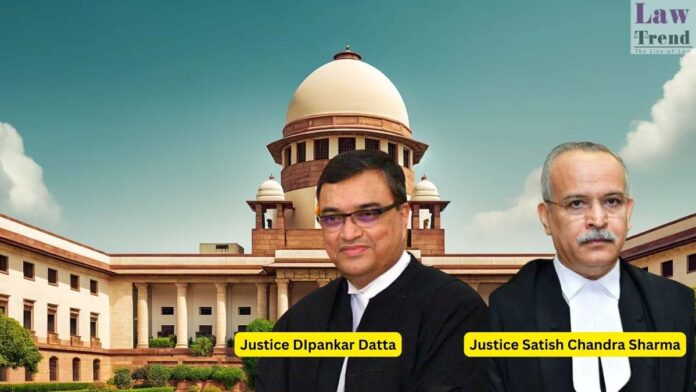In a significant development on Tuesday, a two-judge bench of the Supreme Court, comprising Justices Dipankar Datta and Satish Chandra Sharma, excused themselves from hearing a plea by Kalyani Singh, the daughter of a former high court judge. The plea pertains to the 2015 murder of national-level shooter Sukhmanpreet Singh Sidhu, popularly known as Sippy Sidhu, in Chandigarh.
During the session, the vacation bench expressed their reluctance to hear the case, requesting that the matter be “listed before a bench in which both of us are not members.” Consequently, the case has been deferred to be heard next week by another vacation bench.
Senior advocate Siddharth Dave, representing the petitioner, argued against the April 25 ruling by the Punjab and Haryana High Court, which denied the request for the disclosure of witness statements initially recorded by the Chandigarh police. Dave emphasized the necessity of these statements for cross-examining witnesses during the trial. The case, initially handled by local police, was later transferred to the CBI, which has since framed charges against Singh, including murder, criminal conspiracy, and destruction of evidence.
The controversy stems from the CBI’s investigation following Singh’s arrest in June 2022. The CBI alleges her involvement in Sidhu’s murder, suggesting a fallout from a sour relationship. Sidhu, who was also a practicing lawyer and the grandson of a former judge, was found dead in September 2015.
Also Read
The CBI continues its investigation amid “strong suspicion” of Singh’s involvement, despite an earlier report in 2020 which cited insufficient evidence to formally charge her.




